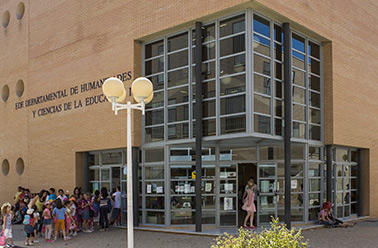Presentation
{{pre.error[0].message}}
Important:
- Document to help you register.
Attention: Information on the semester (4th year).
For more information on the temporary distribution of subjects in the 4th year of the Bachelor's Degree in Early-Childhood Education, follow this link.
Early-childhood education, as it is widely understood, deals with the educational process that covers the period beginning at birth and ending with entry into compulsory schooling (0-6 years).
Our society must provide professionals who are specialists in fostering all the capacities of the subject, orienting them in an appropriate and balanced way, providing, in short, a comprehensive training.
We have the appropriate knowledge and tools to prepare this kind of professional, resulting from a multitude of research work and studies on this developmental stage and, of course, our track record in training teachers.

Suggested profile for newly enrolled students
A student profile is required of someone concerned about educational issues and who thinks critically and analytically about school situations and the school environment.
In addition, the students will be aware from the beginning that the Bachelor's Degree requires active participation in the teaching proposals, since at the end of the learning process, they will have to be the motivators and promoters of learning in the Early-Childhood Education classroom.
General data
Branch of knowledge:
{{pre.presentacion[0].nom_rama}}
Duration of the program:
{{pre.presentacion[0].n_creditos}} Credits / {{pre.presentacion[0].n_duracion}} years
Type of education
{{pre.otros_datos[0].tip_ensenanza}}
Language(s) used
Field of study:
{{pre.presentacion[0].nomambito}}
ISCED:
{{pre.presentacion[0].c_campos_estudio}}
{{pre.presentacion[0].c_campo_estudio_2}}
Coordination
Telephone: {{coo.coordinador[0].tlfcoo | trim}}
E-mail: {{coo.coordinador[0].emailcoo}}
E-mail: {{c.cen_email}}








